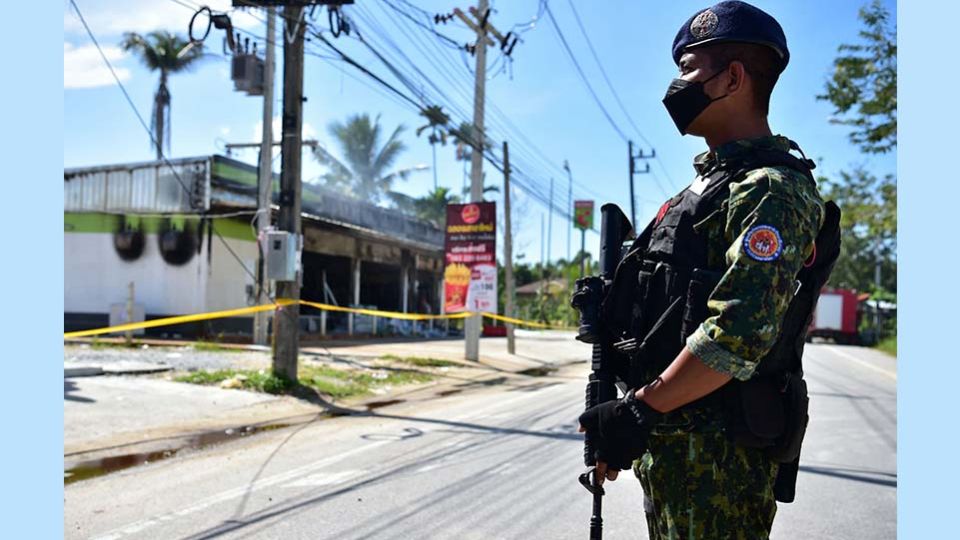May 7, 2025
BANGKOK – Three main groups have been targeted by insurgents in the deep southern border provinces: Thai Buddhists, state officials (including civil servants, military personnel, police, and volunteers), and Muslims who cooperate with state authorities.
A series of coordinated attacks recently shocked the region, including:
- A shooting of monks and novices collecting alms in Saba Yoi District, Songkhla Province
- A mass shooting in Tak Bai District, Narathiwat Province, which left three people dead—including a 9-year-old child and a 70-year-old elder—and two others injured
- A drive-by shooting in Cho-airong District, Narathiwat, where a 76-year-old blind woman was killed and her 50-year-old son seriously wounded as they were heading to a hospital
The attackers deliberately targeted vulnerable individuals, aiming to provoke outrage—and succeeded. The violence drew widespread condemnation and increased pressure on the government to act decisively.
Security analysts believe this resurgence of violence stems from several key factors:
1. Stalled peace talks under both the Srettha Thavisin and Paetongtarn Shinawatra governments, particularly after Deputy Prime Minister and Defense Minister Phumtham Wechayachai called for a strategic overhaul but failed to appoint an official Thai representative for dialogue.
2. Internal conflict within the BRN (Barisan Revolusi Nasional) between older and newer factions, leading the newer generation to operate independently.
3. Timing with the holy month of Ramadan, which historically sees heightened tensions.
4. Reduced security checkpoints on minor roads in response to local complaints during “Ramadan Panjor” policy implementation.
5. Fatigue among security forces, resulting in lapses in vigilance.
6. Political maneuvering to push for special administrative status in the region.
7. Government leaders’ public statements, seen as setting pressure timelines, may have provoked insurgents.
Deputy Defense Minister Gen Nattapon Nakpanich is scheduled to visit the southern provinces on May 7 to meet with stakeholders, including religious leaders, and energize local security forces. Similarly, Army Commander-in-Chief Gen Phana Klaewplodthuk will follow up on operations led by Lt Gen Paisan Nusang, commander of the 4th Army Region, who has deployed proactive paramilitary ranger units.
Currently, there are nine regiments (144 companies) of ranger forces and six female ranger units (45 squads) operating in the region as part of seven task forces, covering areas such as Raman (Yala), Panare (Pattani), Nong Chik (Pattani), Sai Buri (Pattani), Ra-ngae (Narathiwat), Rueso (Narathiwat), and Yaha (Yala).
Their missions include suppressing violence, adapting deployment based on geography and threat levels, and integrating operations with other local agencies.
Additionally, the army chief has ordered Interior Ministry volunteers to man village-level checkpoints, replacing recently withdrawn military forces.
Proactive strategies also include closely monitoring known insurgents—those categorized as “Black Faces” (active operatives) and “Grey Faces” (indirect operatives). Authorities will also begin identifying “White Faces”—individuals with no criminal records but believed to fund or recruit for insurgent groups—aiming to expose and pressure them.
The situation in Thailand’s Deep South remains unresolved after years of conflict. Both militants and government forces continue to adapt in a strategic tug-of-war, with civilians caught in the middle as the true victims.


